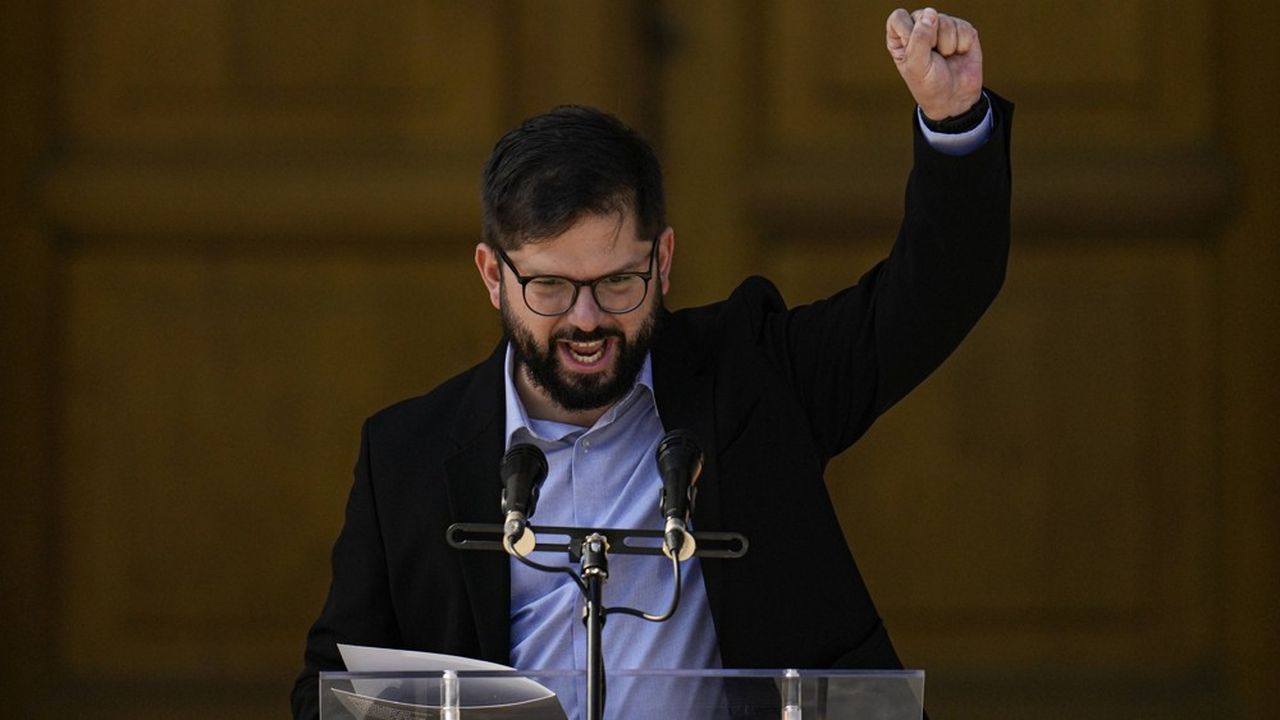A model country of the Chicago school and of liberalism in South America, Chile is about to change course, and its government to change style. Gabriel Boric, 36, will be sworn in on Friday in Valparaíso, before Parliament and a dozen official delegations, mainly from Latin America. At the end of the day, he will deliver his first speech as the new president from the Moneda Palace in Santiago. A highly anticipated moment since his election on December 19 against the ultra-right candidate, José Antonio Kast.
Gabriel Boric brings with him a government whose main figures, like him, emerged during the student movements of 2011, and which marks a turning point in the country’s history. With a majority of women – 14 of the 24 portfolios – and an average age of 42, the government displays strong social and geographic diversity and integrates the different tendencies of the Chilean left.
Expected changes
The style is changing, and perhaps soon the way of governing “with this president and his entire ministerial team who have made relaxation their trademark on the one hand. A choice that worked well during the campaign and in Parliament,” explains Antoine Maillet, researcher at the Institute of Public Affairs at the University of Chile. “We must now see what gives this style in the executive, where certain formal obligations are imposed that will have to be exceeded. There is an expectation of proximity, of horizontality, of another way of doing politics, ”he continues.
The task awaiting the new Chilean executive promises to be difficult. While the local and international economic context is not favorable, the government will have to respond to “all the demands that were strongly expressed during the 2019 revolts, but which precede. In particular on pensions, but also on health, education and, beyond that, on inequalities, ”analyzes the political scientist. And to add: “It is difficult to make such important changes very quickly. This is not the intention of this government. And patience is not necessarily required in the population. »
A new context
Especially since the government does not have a majority in either of the two chambers. It also takes power in an institutional context whose contours are not yet defined. The Constituent Assembly is still working on the text of a constitution aimed at burying that inherited from the Pinochet dictatorship (1973-1990). The text should bring about a radical change in governance for the country. An essential process that “must not be endangered by reforms that would be too rapid, too abrupt. The trap would be to behave like a majority government,” says Antoine Maillet.
The framework in which Gabriel Boric and his government will exercise power will not be decided until next September, the scheduled date of the referendum on the new constitution. In the meantime, the new president will have to prepare the ground for the ambitious economic and social reforms he has carried out throughout his campaign.
–


